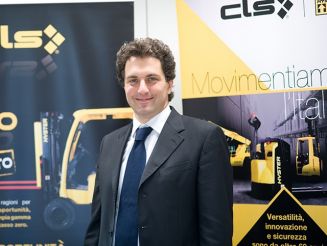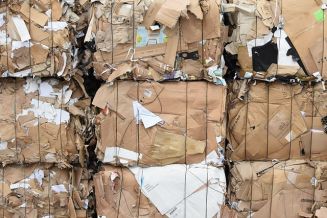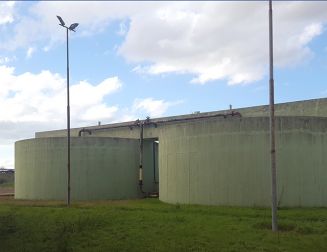
The new Doppstadt screen adapts to different screening requirements.
More...
CLS ha preso parte alla scorsa edizione di Ecomondo, registrando un grande interesse di pubblico per le soluzioni proposte dall’azienda. In quella cornice, Recycling Industry ha avuto il piacere di intervistare Michele Calabrese, Marketing and Product Manager di CLS.
More...
Completamente automatizzata e con una capacità nominale di 450.000 t/anno, l’Ecocentrale Granada, di Alhendín (Granada), è uno degli impianti di punta nel riciclaggio dei rifiuti in Spagna. Lo scorso anno, l’Ecocentrale ha registrato una percentuale di recupero sui rifiuti RSU in ingresso del 10,80%. L’impianto è costituito da 4 linee che processano 30 tonnellate di rifiuti l’ora e dispone di 10 separatori automatici AUTOSORT di TOMRA Sorting Recycling.
More...
Cresce il recupero di imballaggi e il flusso di materie prime seconde prodotte dall’industria del riciclo.

Il progetto si chiama Bio2Energy e prevede la realizzazione, nell'area del depuratore di Viareggio, di un codigestore in grado di generare con un processo del tutto naturale, a partire da fanghi e frazione organica dei rifiuti (FORSU), bioidrogeno, biometano, energia elettrica e fertilizzanti per l'uso in agricoltura.
More...
Interview with Christoph Bach Sales Director EMEA, TOMRA Sorting Recycling.
More...France’s second-largest recycling firm for scrap, GDE Recyclage (a subsidiary of the Amsterdam-based ECORE B.V.), has achieved the targets set by the EU directive on end-of-life vehicles (2000/53/EC), which was passed by the European Parliament and Council on 18 September 2000. Among other things, the directive stipulates that materials and components amounting to at least 95% of the end of-life vehicles’ average weight must be reused or recycled or energetically recovered. To make this possible, Olivier Pitavy, Development Project Manager at ECORE B.V., leads a project that aims to recycle at least 85% of the ASR (Automobile Shredder Residues) with an additional 10% energy recovery.
More...
After five intense trade fair days, IFAT in Munich has closed its doors and STEINERT can look back on an outstanding trade fair presence. “We have rarely had such a high density of high-level, concrete discussions with new customers,” reported Dr. Uwe Habich and Peter Funke, both Managing Directors of STEINERT Elektromagnetbau GmbH. “The combination of the UniSort Black and the UniSort BlackEye, for sorting black plastics, attracted customers like a magnet. We have a clear technological advantage when it comes to boosting the recycling rates in this area,” continued Peter Funke, summing up the participation. The plastic sorting can be carried out at various stations along the recycling chain — at disposal companies and recycling firms alike. The UniSort Black is, for example, used in sorting facilities for lightweight packaging from household goods (separated into “yellow bins” in Germany). This machine sorts dark and black objects as well as the other residual materials that the upstream technology misses because NIR systems cannot recognize them. It can reveal them as black objects within the waste stream and sort them out. The UniSort BlackEye is the next logical step in this evolution of the sorting systems, because it can distinguish black plastics according to the categories PE, PP, PS and PVC. To sum up, the Managing Directors of the magnetic sorting and sensor technology specialists from Cologne said: “There is a great deal of interest in this type of economic processing technology. We had a very large number of visitors with real tasks to accomplish.
More...